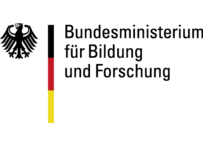LegiNot is a joint research project funded by the Federal Ministry of Education and Research. Its main objective is to analyse the interdependencies between different aspects of legitimacy and legitimation in the course of a large-scale emergency situation. This includes mutual relations between juridical and institutional demands, societal and regulatory expectations and ethical (external) criteria of legitimacy.
Additionally to its academic interest, the project aims to generate practical knowledge for the communication and crisis management practices of organisations with safety- and security-related tasks, particularly for those at the local level. Empirically, the project focuses on the COVID-19 pandemic, although it is interested in understanding general patterns of large-scale emergencies and crises. LegiNot is differentiated in three parts, one of them conducting research from a sociological perspective at the CSS Uni Freiburg. This sociological part of LegiNot is concerned with patterns of legitimation regarding prominent measures to contain COVID-19 and their relevance for the legitimacy of crisis management on different levels (federal, state and communal).
LegiNot’s sociological part is structured in three main tasks:
- reconstructing patterns of legitimation regarding the enacting, concretisation, implemen-tation and enforcement of prominent measures to contain COVID-19, among them the reduction of contacts, contact-tracing with the Corona-Warn-App, wearing of face masks, and vaccination campaigns
- reconstructing expectations of legitimation in public discourses with affirmative or critical perspectives among experts, representatives of societal groups, and other parts of civil society in the course of the COVID-19 pandemic
- reconstructing and analysing logics of decision-making in the operative crisis management of local actors implementing regulatory frameworks provided at state or federal level
Conceptually, the sociological part of LegiNot combines perspectives from the sociology of risk, the sociology of justification, sociological systems theory, and affect theory. This approach will be completed by a qualitative and explorative research design, which consists of the following methods: discourse analysis (knowledge approach), semi-structured and focus group interviews as well as ethnography.
Supported by:


Duration: 01.03.2022 until 28.02.2025
Project management: Prof. Dr. Stefan Kaufmann
Scientific Assistance: Tjorven Harmsen; André Biermann
Partners:
- Universität Tübingen - Stiftungsprofessur für Kriminalprävention und Risikomanagement (Supervisor: Prof. Dr. Rita Haverkamp)
- Universität Bielefeld - Lehrstuhl für öffentliches Recht, Staatslehre und Verfassungsgeschichte (Supervisor: Prof. Dr. Christoph Gusy)
Associated Partners:
- Johanniter-Unfall-Hilfe e.V. – Regionalverbund Rhein-Main
- Polizeipräsidium Freiburg
- Landeshauptstadt München
- LKA Bayern
- Bayerisches Kompetenzzentrum "Sicherheit im öffentlichen Raum"
External Research Partners:
- DEFUS (Deutsch-Europäisches Forum für Urbane Sicherheit e.V)
- DPT (Deutscher Präventionstag) – Institut für angewandte Präventionsforschung